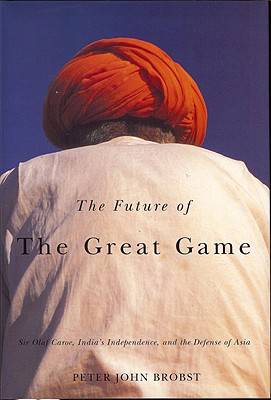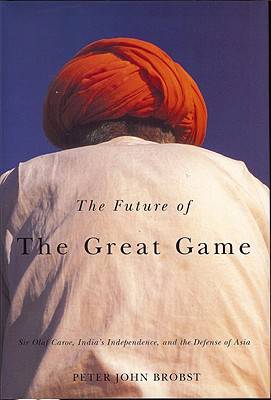
- Afhalen na 1 uur in een winkel met voorraad
- Gratis thuislevering in België vanaf € 30
- Ruim aanbod met 7 miljoen producten
- Afhalen na 1 uur in een winkel met voorraad
- Gratis thuislevering in België vanaf € 30
- Ruim aanbod met 7 miljoen producten
Zoeken
The Future of the Great Game
Sir Olaf Caroe, India's Independence, and the Defense of Asia
Peter John Brobst
€ 37,45
+ 74 punten
Omschrijving
The Great Game originally described Britain's efforts to maintain India as a base from which to defend the Persian Gulf and Southeast Asia against rival empires. As British India's leading geostrategist during the end of imperial rule, as well as the last British governor on the Afghan frontier, Sir Olaf Caroe saw the future of the Great Game. He predicted with remarkable acuity how the struggle for mastery in South Asia's borderlands would play out beyond the end of the Raj. In the aftermath of 9/11, much as Caroe foretold, flashpoints continue to light up from Afghanistan and the Persian Gulf to Nepal and Burma; threats range from terrorism and insurgency to naval expansion and nuclear rivalry. India commands the vital center, its power key to the overall stability and defense of Asia. This book examines Caroe's thinking to illuminate both the geopolitics behind India's independence in 1947 and the historical precedents of contemporary South Asian strategy.
Specificaties
Betrokkenen
- Auteur(s):
- Uitgeverij:
Inhoud
- Aantal bladzijden:
- 200
- Taal:
- Engels
- Reeks:
Eigenschappen
- Productcode (EAN):
- 9781931968102
- Verschijningsdatum:
- 5/01/2005
- Uitvoering:
- Hardcover
- Formaat:
- Genaaid
- Afmetingen:
- 157 mm x 231 mm
- Gewicht:
- 453 g

Alleen bij Standaard Boekhandel
+ 74 punten op je klantenkaart van Standaard Boekhandel
Beoordelingen
We publiceren alleen reviews die voldoen aan de voorwaarden voor reviews. Bekijk onze voorwaarden voor reviews.











